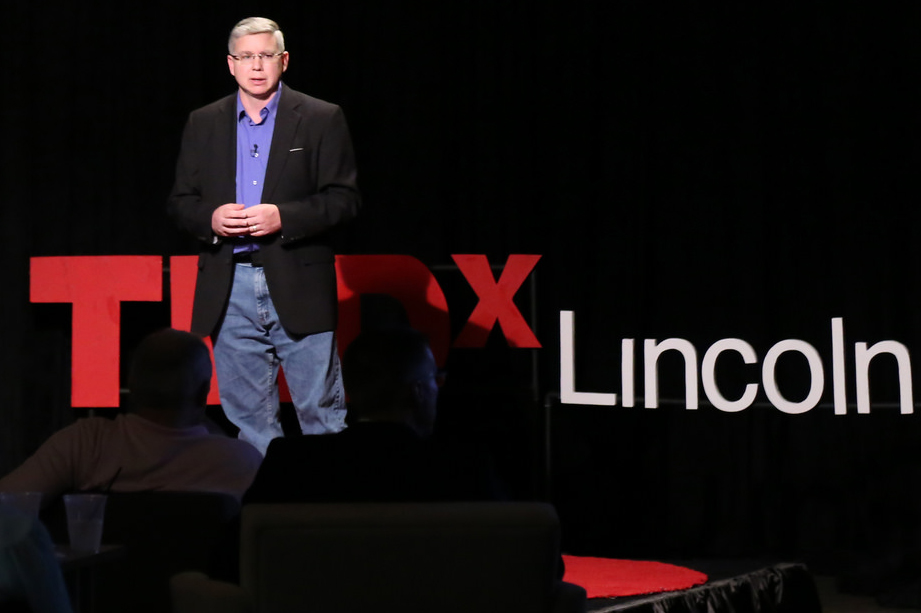
To run a successful operation, Nebraska wheat farmer Chris Morgan needs rain, sun, and a bit of technology.
High-speed internet has turned Morgan’s new combine harvester into an on-the-go data analysis center. At his fingertips—autonomous steering enables safe driving with the laptop—is digital data for each square foot harvested, which he can analyze. If the farm used irrigation pivots, he’d be able to switch them off and on, saving water and energy.
“Where he sits resembles more of a cockpit that one might find in a fighter jet, than that of a tractor. Chris has broadband access, not only at his home, but in his cockpit, and to his fields,” Tim Lindahl, CEO of Wheat Belt Public Power District, told a recent TEDx event in Lincoln, Nebraska.
Short for technology, entertainment and design, TED talks are videos based on short presentations at a TED conference or satellite event. TEDx talks—the x means it’s an independently organized event—are local programs that bring people together to share a TED-like experience.
In a 12-minute talk titled “Barn Raising Broadband,” Lindahl proposed that communities band together to bring affordable high-speed internet, much like the rural electrification effort in the 1930s.
That accomplishment “was driven by cooperation, passion and vision. This was not done for profit, it was done for the sheer purpose of improving and growing rural American communities. This innovative thought and the resulting achievement became a foundation to our national success,” he said.
Pockets of Wheat Belt’s service area can access a fiber optic ring that surrounds Nebraska, said Lindahl. And when the PPD relocated its headquarters to Sidney, “access to fiber was a consideration. We’re tied into the fiber ring, so there’s good connectivity at the office.”
But if homes or businesses can’t access broadband, said Lindahl, “You use cellular, if available, which is very expensive. Or, you come into town, or you go without.”
TEDx organizer Randy Bretz met Lindahl at a meeting of the Nebraska Broadband Community Council and invited him to speak. “As a member of the council I became painfully aware” of the urban/rural broadband divide, said Bretz.
Lindahl’s August talk “will help move the concept of helping provide broadband for rural Nebraska and rural America in much the same way that our country provided electricity when the [Rural Electrification Administration] was formed,” said Bretz.
Victoria A. Rocha is a staff writer for NRECA.